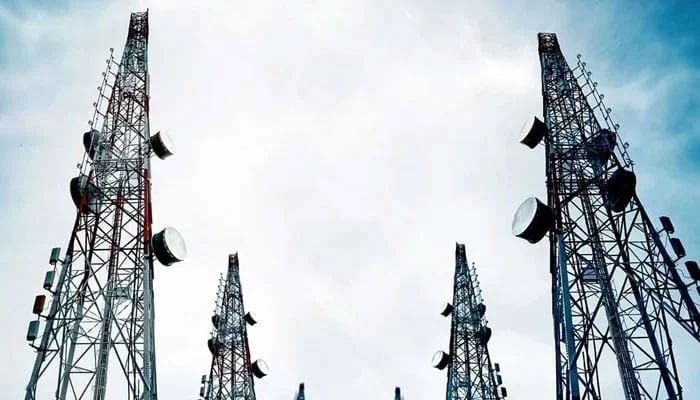Telecom operators write to PM over internet crisis
They warn that the telecom sector could face an annual loss of Rs12 billion
ISLAMABAD: Telecom operators have sent a letter to Prime Minister Shehbaz Sharif, urging immediate action to address the ongoing internet slowdown crisis.
They warn that the telecom sector could face an annual loss of Rs12 billion. According to the letter from the Telecom Operators Association, the slowdown in internet speed has resulted in a daily decrease of 6,400 terabytes in internet traffic nationwide. This slowdown is creating difficulties across various sectors, including commerce, healthcare, education, finance, banking, and public sector operations, leading to increased financial pressure on the telecom sector. This could result in a loss of over Rs3 billion annually to the national treasury due to reduced telecom sector revenue.
It said Pakistan, home to the world’s fourth-largest freelance workforce, relies heavily on these freelancers, who contribute significantly to IT exports. The internet slowdown has severely impacted these freelancers and poses a threat to IT exports. Therefore, it is crucial to restore internet speed as soon as possible.
The letter points out that many in the working class depend on the internet for communication with clients and others, and the lower-middle class will face adverse financial effects due to the slowdown.
The letter calls on the prime minister to promptly identify and address any technical issues causing the slowdown, emphasizing that delays in resolving this issue will have economic repercussions for the country.
-
 Leonardo DiCaprio's Co-star Reflects On His Viral Moment At Golden Globes
Leonardo DiCaprio's Co-star Reflects On His Viral Moment At Golden Globes -
 SpaceX Pivots From Mars Plans To Prioritize 2027 Moon Landing
SpaceX Pivots From Mars Plans To Prioritize 2027 Moon Landing -
 J. Cole Brings Back Old-school CD Sales For 'The Fall-Off' Release
J. Cole Brings Back Old-school CD Sales For 'The Fall-Off' Release -
 King Charles Still Cares About Meghan Markle
King Charles Still Cares About Meghan Markle -
 GTA 6 Built By Hand, Street By Street, Rockstar Confirms Ahead Of Launch
GTA 6 Built By Hand, Street By Street, Rockstar Confirms Ahead Of Launch -
 Funeral Home Owner Sentenced To 40 Years For Selling Corpses, Faking Ashes
Funeral Home Owner Sentenced To 40 Years For Selling Corpses, Faking Ashes -
 Why Is Thor Portrayed Differently In Marvel Movies?
Why Is Thor Portrayed Differently In Marvel Movies? -
 Dutch Seismologist Hints At 'surprise’ Quake In Coming Days
Dutch Seismologist Hints At 'surprise’ Quake In Coming Days -
 Australia’s Liberal-National Coalition Reunites After Brief Split Over Hate Laws
Australia’s Liberal-National Coalition Reunites After Brief Split Over Hate Laws -
 DC Director Gives Hopeful Message As Questions Raised Over 'Blue Beetle's Future
DC Director Gives Hopeful Message As Questions Raised Over 'Blue Beetle's Future -
 King Charles New Plans For Andrew In Norfolk Exposed
King Charles New Plans For Andrew In Norfolk Exposed -
 What You Need To Know About Ischemic Stroke
What You Need To Know About Ischemic Stroke -
 Shocking Reason Behind Type 2 Diabetes Revealed By Scientists
Shocking Reason Behind Type 2 Diabetes Revealed By Scientists -
 SpaceX Cleared For NASA Crew-12 Launch After Falcon 9 Review
SpaceX Cleared For NASA Crew-12 Launch After Falcon 9 Review -
 Meghan Markle Gives Old Hollywood Vibes In New Photos At Glitzy Event
Meghan Markle Gives Old Hollywood Vibes In New Photos At Glitzy Event -
 Simple 'finger Test' Unveils Lung Cancer Diagnosis
Simple 'finger Test' Unveils Lung Cancer Diagnosis




